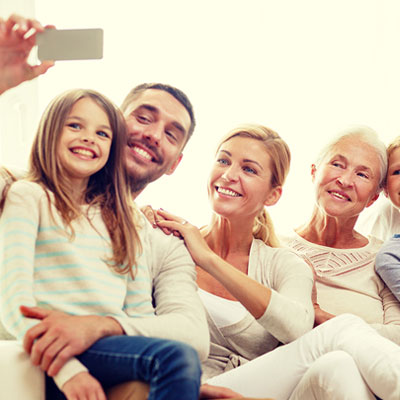Millennial Caregivers For Elderly Parents

Millennials are the current young adult generation, born between 1980-2000, that will be responsible for the care of the upcoming generation of seniors. Predicting their caregiving style may begin with an examination of housing trends as well as Millennial characteristics. This information may help society understand how this generation plans for the future and how they will be equip themselves to assist aging parents. Considering that this is the largest generation population since Baby Boomers, Millennials are poised to reshape the face of America with their lifestyle choices.
What Are They Like?
Millennials are in no hurry to get married and raise a family. On average, they tend to marry around the age of 30. They don’t really like to purchase high end products. Rather than buy a car they are more likely to use ride share apps, public transportation or live in an urban area that makes bike transportation practical. In fact, due to their aversion to purchasing cars, economists predict that car ownership may eventually become a thing of the past.
What they are willing to spend money on is education and technology. Bloomberg reports that Millennials are the most educated generation our nation has ever produced. Even once they achieve obtaining a degree, it is not unusual for them to continue to pursue further education or study a different field altogether.
Millennials love technology as much as they love information. Many Millennials struggle financially due to student loan debt. They may economize by avoiding financing a car purchase, opting for ride sharing instead. However, they are heavily dependent on technology and are willing to accept conditions of debt in order to be equipped with the technological devices they believe are absolutely necessary.
Where Do They Live?
As Millennials leave the nest and begin building their young, adult lives, it seems that they are reluctant to enter the home-buying market. The ages of 25-45 years are prime time for purchasing a home. The oldest Millennials would be around 36-years-old yet home sales for individuals under the age of 45 years is nominal at best. Many Millennials are renting while nearly 30% are still living at home with their parents. Considering these details, the Millennial trend may be to live with parents who age in place in their own home.
What Will Define Their Style Of Care?
The Millennial generation is the first generation to be shaped by technology from the day they were born. Technological advances began to be integrated in public school systems beginning in the 1970s. By the time the Millennial generation entered kindergarten, practically every school was online and connected. As they aged, new developments resulted in connectivity for individuals everywhere round-the-clock.
Trusting technology will probably be a hallmark of how Millennials care for aging parents. For example, smart home systems may provide more independence for Millennial caregivers. They can be physically away from home pursuing their ambitions yet still have a commanding presence through automated systems that provide monitoring, security, alerts, appliance controls, and lifestyle management tools. Millennials will assist parents as they age in place in the comfort of their own homes through the latest technological advances.
Smart technology designed specifically for in-home caregiving is called assistive domotics. This allows automation to track everything from the movements of a loved one to managing their pillboxes and dispensing medication. Millennials may stay on track with their education or career away from home, trusting in devices such as an electronic medication dispenser. With each dose sorted, an alarm sounds and dispenses the medication dose. Taking the dose involves pushing a button to deactivate the alarm. If this action is not performed a text message alerts a caregiver.
In addition to the physical aspects of care is technology designed to monitor the invisible. Rather than sit with a parent to prick a finger for a blood glucose check, a Millennial is more likely to purchase the latest technology for diabetes management. Currently Apple’s watch is designed as a fitness tracker. However, there are features in development to add options such as glucose monitoring. These are the gadgets Millennials love not just for their technology but also because of a function that promotes mobility and independence through connectivity.
A Millennial Future
The results of a future shaped by Millennials is cause for much optimism. They tend to be optimistic themselves, highly involved in their local communities through social networks as well as activism. They are concerned with issues related to positive social change, healthy lifestyles and equality. Perhaps this is the result of Millennials being the most diverse generation to ever be produced by the country. This may, in turn, cause them to become the best caregivers for an elderly population who desires to age in place.


